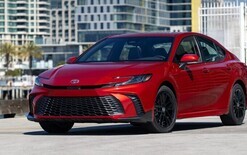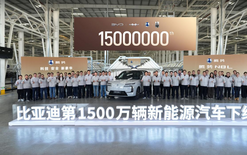Climate report: ‘too much’ EV focus

The Motor Industry Association (MIA) says a report by the Climate Change Commission tabled in parliament on June 9 makes some “good suggestions” on a package of regulatory tools aimed at accelerating the uptake of low-emissions vehicles.
These include a clean-car import standard, market incentives via a feebate scheme, and various tax and accounting measures, such as reductions in fringe-benefit tax and depreciation treatment, and developing low-carbon fuel markets.
David Crawford, the MIA’s chief executive, notes the commission has altered its views on the rate of electric-vehicle (EV) uptake when compared to what was contained in its draft report.
However, the MIA is worried the report it still too reliant on people purchasing EVs in substantially higher numbers.
Crawford, pictured, says: “The new-vehicle sector would love to sell as many EVs as they want us to.
“But this side of 2030 it is highly unlikely we will be able to get enough EVs to reach half of light-vehicle imports by 2029.
“The bulk procurement of EVs is a welcomed recommendation. However, as the world scrambles to buy electric cars, the government’s ability to buy in bulk is likely to remain constrained for some years to come.
“The commission’s proposal to ban internal combustion engines [ICEs] as soon as 2030 and no later than 2035 is also, in our view, overly ambitious.”
The MIA supports recommendations in the report to develop a low carbon-fuel market, such as hydrogen, synthetic fuels and biofuels.
“This will be more effective in quickly reducing the transport sector’s carbon-dioxide emissions.”
What else is in the report?
The report published by the commission, which is officially called “Ināia tonu nei: a low-emissions future for Aotearoa”, attracted more than 15,000 submissions on its draft version.
It suggests a pathway that would see petrol car imports cease by 2032. The commission adds that “nearly all vehicles entering the country’s fleet would need to be electric by 2035”.
Also, an industry co-led pricing system, sparing agriculture from joining the emissions trading scheme (ETS), “would have to truly work – and even then, livestock numbers as a result would have to fall by 15 per cent this decade”.
The commission recommends planting many more trees – an extra 380,000 hectares of “exotic forestry” by 2035 along with an annual 25,000ha of native forest by 2030 – until at least 2050.
By 2035, 60 per cent of New Zealand’s energy would need to come from renewable sources.
And by mid-century, low and medium-temperature heat in industry and buildings would come from electricity and biomass.
Among the steps the commission has put forward include an end to coal heating, more greener homes and a waste-stripping “circular” economy.
Its report recommends the government to recycle revenue from the ETS back into emissions reductions programmes. Finance Minister Grant Robertson has committed to doing this from 2022’s budget.





